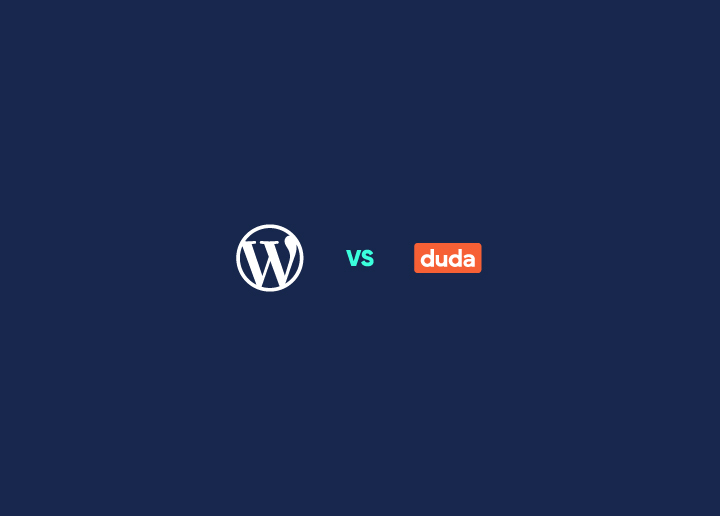Choosing the right platform to build your website can feel overwhelming, especially with so many options available. Two popular choices are WordPress and Duda. WordPress is the go-to platform for millions of websites, while Duda is a newer, user-friendly website builder designed for simplicity and speed. But which one is the better fit for you? In this article, we’ll break down the pros, cons, and best use cases for both platforms to help you make an informed decision.
What is WordPress?
WordPress is a powerhouse in the website-building world. It’s an open-source content management system (CMS) that powers over 43% of all websites on the internet. There are two versions: WordPress.org (self-hosted) and WordPress.com (hosted). WordPress is incredibly flexible, making it perfect for everything from personal blogs to massive e-commerce stores. With thousands of themes and plugins, it’s a favorite among developers and advanced users who want full control over their websites.
What is Duda?
Duda is a cloud-based website builder that’s all about simplicity and speed. It’s designed for agencies, freelancers, and small businesses that need to create professional-looking websites quickly. Duda is known for its drag-and-drop editor, responsive designs, and team collaboration features. Unlike WordPress, Duda is a fully hosted platform, meaning you don’t have to worry about things like hosting or maintenance. It’s a great option for those who want a hassle-free website-building experience.
WordPress vs Duda: Key Differences
Feature | WordPress | Duda |
Ease of Use | Requires some technical knowledge | Super beginner-friendly, drag-and-drop |
Customization | Endless options with themes and plugins | Limited to Duda’s templates and tools |
Hosting | You need to find your own hosting provider | Hosting is included |
Cost | Free software, but costs add up for hosting, themes, and plugins | Paid plans start at $14/month |
Scalability | Perfect for small blogs to large businesses | Best for small to medium websites |
SEO Capabilities | Advanced SEO with plugins like Yoast SEO | Basic SEO tools built-in |
E-commerce | Requires plugins like WooCommerce | Built-in e-commerce features |
Maintenance | You handle updates and security | Fully managed by Duda |
Support | Community forums and documentation | Email and chat support |
WordPress: Pros and Cons
Why Choose WordPress?
Total Control: WordPress gives you complete ownership of your website. You can customize every aspect of it, from design to functionality.
Scalability: Whether you’re running a small blog or a large e-commerce store, WordPress can handle it all.
SEO Superstar: With plugins like Yoast SEO and Rank Math, WordPress is one of the best platforms for optimizing your site for search engines.
Huge Community: WordPress has a massive global community, so you’ll never run out of tutorials, forums, or resources to help you out.
Flexibility: With thousands of themes and plugins, you can create virtually any type of website.
Drawbacks of WordPress
Learning Curve: WordPress can be intimidating for beginners. You’ll need to spend some time learning how it works.
Maintenance: You’re responsible for updates, backups, and security, which can be time-consuming.
Costs Add Up: While the software itself is free, you’ll need to pay for hosting, premium themes, and plugins.
No Built-In Hosting: Unlike Duda, you’ll need to find and manage your own hosting provider.
Duda: Pros and Cons
Why Choose Duda?
Ease of Use: Duda’s drag-and-drop editor is incredibly intuitive, making it perfect for beginners.
All-in-One Solution: Duda takes care of hosting, templates, and features, so you can focus on building your site.
Responsive Design: Duda’s templates are designed to look great on all devices, which is a huge plus in today’s mobile-first world.
Team Collaboration: If you’re working with a team, Duda offers tools that make collaboration a breeze.
Fast Loading Times: Duda’s websites are optimized for speed, which is great for user experience and SEO.
Drawbacks of Duda
Limited Customization: You’re stuck with Duda’s templates and features, which might not be enough for advanced users.
Not Open-Source: Unlike WordPress, you can’t modify Duda’s core code, which limits flexibility.
Scalability Issues: Duda is best for small to medium websites. It might not be the best choice for large or complex projects.
Higher Cost: Duda’s pricing can be steeper compared to WordPress, especially if you need advanced features.
WordPress vs Duda: Which Should You Choose?
Go with WordPress If:
You want full control over your website’s design and functionality.
You’re building a blog, e-commerce store, or large business website.
You’re comfortable learning new tools or have some technical knowledge.
You need advanced SEO features and scalability.
You want to own your website and data completely.
Go with Duda If:
You’re a beginner and want a simple, no-fuss website builder.
You need to create a website quickly and don’t want to deal with hosting or maintenance.
You’re building a small business site, portfolio, or landing page.
You’re working with a team and need collaboration tools.
You want a responsive, mobile-friendly website without the hassle.
WordPress vs Duda: Pricing Breakdown
WordPress Costs
WordPress.org: Free software, but you’ll need to pay for:
Hosting: 3–3–30/month (depending on the provider).
Premium Themes: 50–50–200 (one-time fee).
Plugins: Free or premium (up to $100+ per year).
WordPress.com: Free plan with WordPress branding; paid plans start at $4/month.
Duda Costs
Basic Plan: $14/month (single website, limited features).
Team Plan: $22/month (multiple websites, team collaboration tools).
Agency Plan: $44/month (advanced features, white-label options).
Custom Plan: Contact Duda for enterprise-level pricing.
WordPress vs Duda: SEO and E-Commerce
SEO
WordPress: With plugins like Yoast SEO and Rank Math, WordPress is a dream for SEO. You have full control over meta tags, URLs, and more.
Duda: Duda offers basic SEO tools, like meta tags and alt text, but it’s not as powerful as WordPress for advanced SEO strategies.
E-Commerce
WordPress: Using WooCommerce, WordPress can handle everything from small online stores to large e-commerce platforms. It’s highly customizable and scalable.
Duda: Duda has built-in e-commerce features, but it’s better suited for small stores. If you’re planning to grow your online business, WordPress is the better choice.
Final Thoughts: WordPress or Duda?
At the end of the day, the choice between WordPress and Duda comes down to your needs and skill level.
WordPress is the ultimate choice for those who want full control, endless customization options, and the ability to scale their website as they grow. It’s perfect for bloggers, e-commerce stores, and businesses with big ambitions.
Duda is ideal for beginners, small businesses, and agencies that want a simple, fast, and hassle-free way to create professional websites. It’s great for portfolios, landing pages, and small online stores.
If you’re just starting out and want something easy to use, Duda is a fantastic option. But if you’re looking for a platform that can grow with you and offer unlimited possibilities, WordPress is the way to go.
Ready to Get Started?
Try Duda: Duda.co
Explore WordPress: WordPress.org



